#Norman Krasna
Text
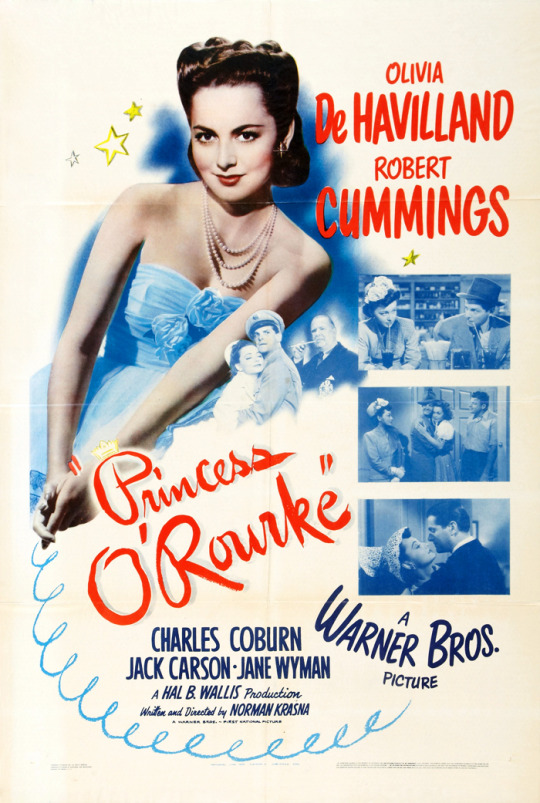
#Princess O'Rourke#Olivia de Havilland#Robert Cummings#Charles Coburn#Jack Carson#Jane Wyman#Norman Krasna#1943
3 notes
·
View notes
Text
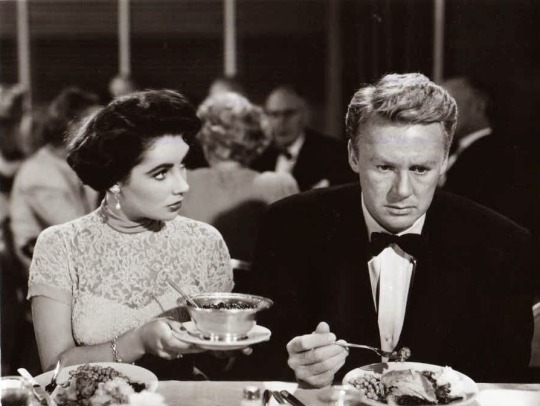
Elizabeth Taylor-Van Johnson "Cicatrices del recuerdo" (The big hangover) 1950, de Norman Krasna.
34 notes
·
View notes
Text
Top two vote-getters will move on to the next round. See pinned post for all groups!
#best best screenplay tournament#brackets#academy awards#oscars#best original screenplay#django unchained#quentin tarantino#princess o'rourke#norman krasna#rain man#ronald bass#barry morrow#the crying game#neil jordan#lost in translation#sofia coppola#bracket tournament#poll#polls
2 notes
·
View notes
Photo
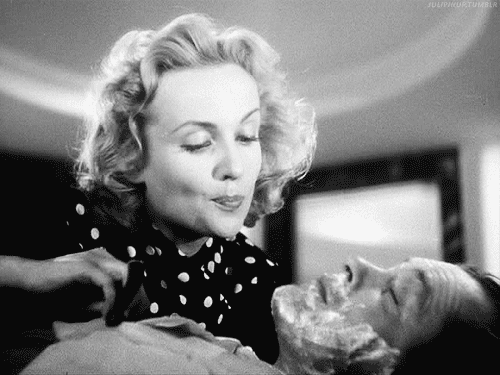
- If you had it all to do over again, would you still have married me?
- Honestly, no.
Mr. & Mrs. Smith, Alfred Hitchcock (1941)
#Alfred Hitchcock#Norman Krasna#Carole Lombard#Robert Montgomery#Gene Raymond#Jack Carson#Philip Merivale#Lucile Watson#William Tracy#Charles Halton#Esther Dale#Harry Stradling Sr.#Edward Ward#William Hamilton#1941
7 notes
·
View notes
Text
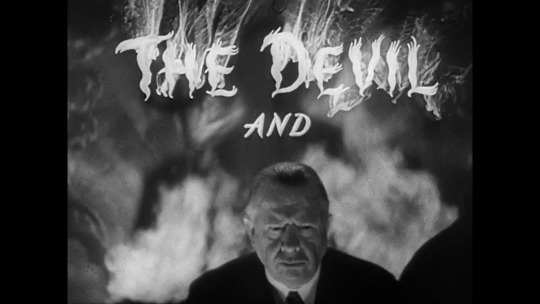



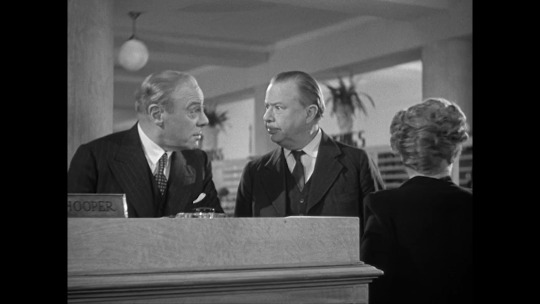
youtube
The Devil and Miss Jones (1941)
My rating: 6/10
Gotta love a pro-union narrative, though this one does propagate the old myth of the good millionaire a bit - though at least in his case, it's character development. Ending's kind of sudden, though, felt a bit like they'd painted themselves into a corner and just kind of skipped the actual resolution, going straight to the faintly ridiculous happily ever after.
1 note
·
View note
Text
White Christmas (1954) Review
White Christmas (1954) Review
During the World War, two men Bob Wallace and Phil Davis entertain the troops and then continue to have a successful career after it ends. Meeting a sister double act Betty and Judy Haynes would change their Christmas plans from Miami to Vermont which just happens to be owned by their former commanding Major General Thomas F. Waverly.
⭐️⭐️⭐️⭐️
(more…)
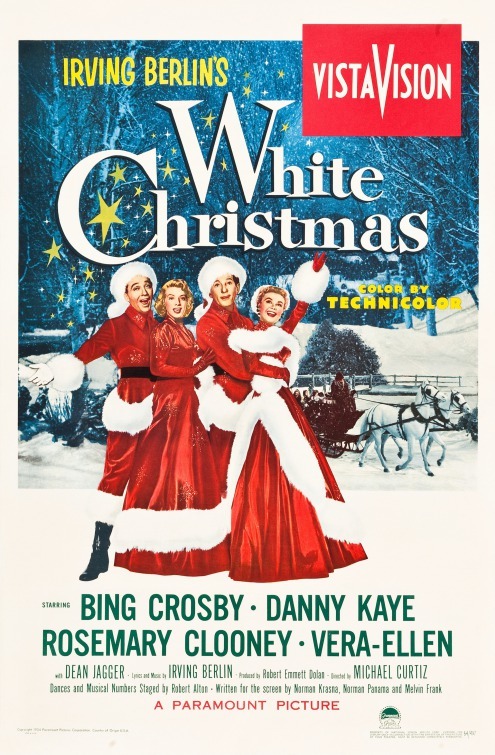
View On WordPress
#1954#Al Bain#Anne Whitfield#Bea Allen#Bing Crosby#Christmas#Comedy#Danny Kaye#Dean Jagger#Frank Baker#John Brascia#Leon Alton#Mary Wickes#Melvin Frank#Michael Curtiz#Musical#Norman Krasna#Norman Panama#Review#Romance#Rosemary Clooney#Sky Cinema#Vera-Ellen#White Christmas
0 notes
Text
Norman Krasna vs. Norman Panama: Get it Straight!
Norman Krasna vs. Norman Panama: Get it Straight!
A little thing today in honor of the natal day of playwright/screenwriter/producer/director Norman Krasna (1909-1984). We know of this man chiefly as a F.O.G. (Friend of Groucho), for the pair co-wrote the forgotten movie comedy The King and the Chorus Girl (1937) and the better remembered play Time for Elizabeth (1949).
If you’re like me, you’re apt to mix him up with Norman Panama (1914-2003),…
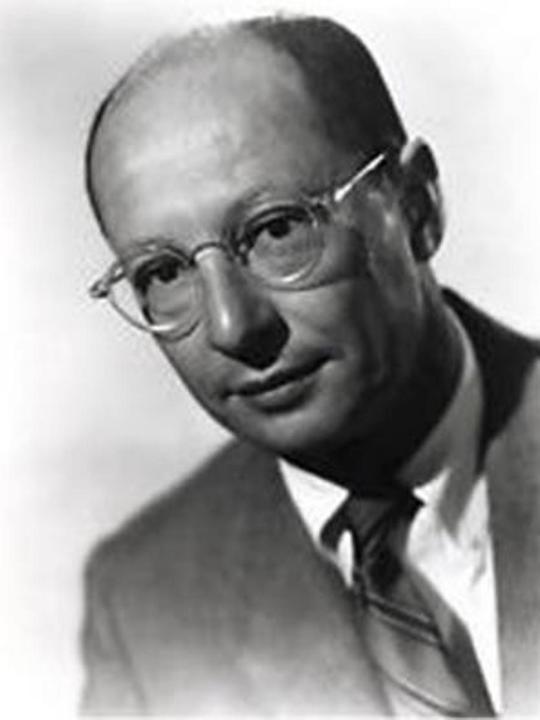
View On WordPress
#Bob Hope#Broadway#Comedy#director#Groucho Marx#Hollywood#movies#Norman Krasna#Norman Panama#playwright#screenwrier
0 notes
Text
Bundle Of Joy (1956)
Bundle Of Joy by #NormanTaurog starring #DebbieReynolds and #EddieFisher, "plods along under the mistaken assumption that the pretty sets and bright cinematography will allow us to excuse the script’s preposterous whims,"
NORMAN TAUROG
Bil’s rating (out of 5): B.5
USA, 1956. Edmund Grainger Productions. Story by Felix Jackson, Screenplay by Norman Krasna, Robert Carson, Arthur Sheekman. Cinematography by William E. Snyder. Produced by Edmund Grainger. Music by Walter Scharf. Production Design by Albert S. D’Agostino, Walter Holscher. Costume Design by Howard Shoup. Film Editing by Harry Marker.
Fifties movies…
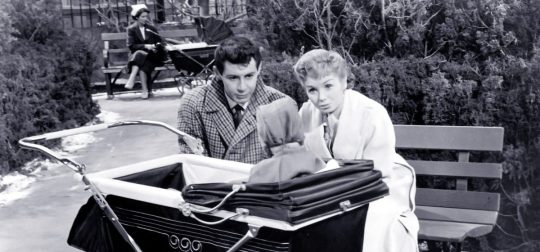
View On WordPress
#Adolphe Menjou#Albert S. D&039;Agostino#Arthur Sheekman#Bill Goodwin#Debbie Reynolds#Eddie Fisher#Edmund Grainger#Edmund Grainger Productions#Edward Brophy#Felix Jackson#Gil Stratton#Golden Globe 1956#Harry Marker#Howard McNear#Howard Shoup#Mary Treen#Melville Cooper#Nita Talbot#Norman Krasna#Norman Taurog#Robert Carson#Robert H. Harris#Scott Douglas#Tommy Noonan#Una Merkel#Walter Holscher#Walter Scharf#William E. Snyder
0 notes
Text
𝑰𝒏𝒅𝒊𝒔𝒄𝒓𝒆𝒆𝒕 is a 1958 British romantic comedy film produced and directed by Stanley Donen, and starring Ingrid Bergman and Cary Grant. The film is based on the 1954 play Kind Sir by Norman Krasna. This was Bergman and Grant's second film together, following Alfred Hitchcock's 𝑵𝒐𝒕𝒐𝒓𝒊𝒐𝒖𝒔 (1946).
(Wiki)
95 notes
·
View notes
Text
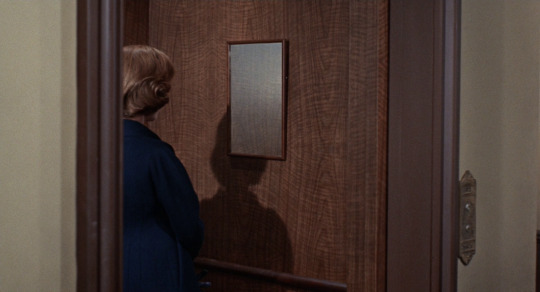
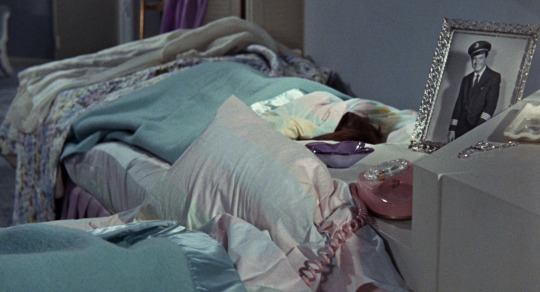

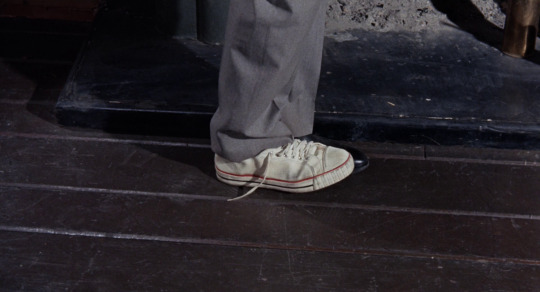


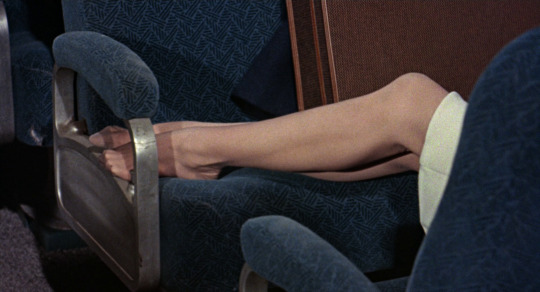
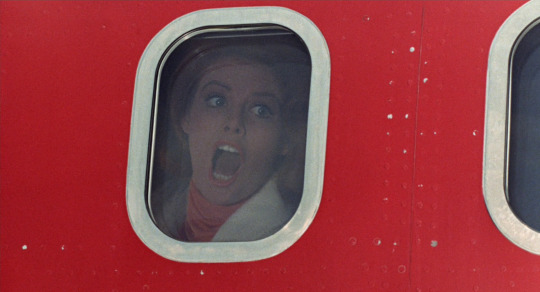

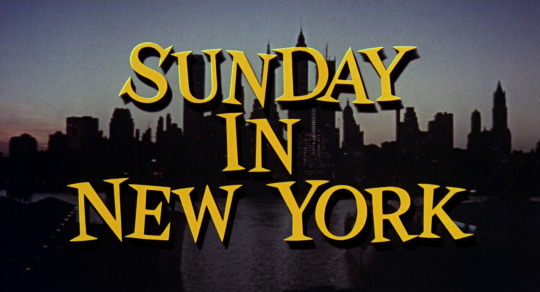
Sunday in New York, 1963.
Dir. Peter Tewksbury | Writ. Norman Krasna | DOP Leo Tover
12 notes
·
View notes
Photo

“We, the undersigned, as American Citizens who believe in constitutional democratic government, are disgusted and outraged by the continuing attempt of the House Committee on Un-American Activities to smear the Motion Picture Industry.” 10/21/1947
File Unit: Organization Files of the Files and Reference Section of the Internal Security Committee During the 79th through 94th Congresses, 1945 - 1976
Series: Committee Papers, 1945 - 1975
Record Group 233: Records of the U.S. House of Representatives, 1789 - 2015
Transcription:
The Committee for the First Amendment
We, the undersigned, as American Citizens who believe in constitutional democratic government, are disgusted and outraged by the continuing attempt of the House Committee on Un-American Activities to smear the Motion Picture Industry.
We hold that these hearings are morally wrong because:
Any investigation into the political beliefs of the individual is contrary to the basic principles of our democracy;
Any attempt to curb freedom of expression and to set arbitrary standards of Americanism is in itself disloyal to both the spirit and the letter of our Constitution.
Committee for the First Amendment
Richard Brooks Paulette Goddard Burgess Meredith
Eddie Cantor Benny Goodman Doris Nolan
Richard Conte Van Heflin Gregory Peck
Norman Corwin Paul Henreid Vincent Price
Philip Dunne Katharine Hepburn Milton Sperling
Julius Epstein John Houseman Shepperd Strudwick
Philip Epstein Marsha Hunt Barry Sullivan
Henry Fonda John Huston Jerry Wald
Melvin Frank Norma Krasna Cornel Wilde
Ava Gardner Anatole Ltivak Billy Wilder
Sheridan Gibney Myrna Loy William Wyler
Dorothy McGuire Collier Young
The above statement has been given to the American press. If it expresses your views and you wish to join with us in further action against this affront to our way of life, please wire:
"Bill of Right:
care of Western Union
Beverly Hills
52 notes
·
View notes
Text
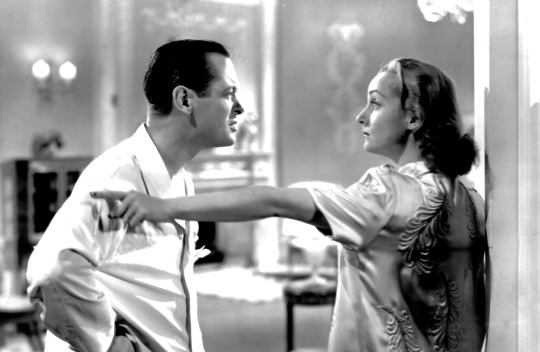
Ray Milland and Carole Lombard in Mr. & Mrs. Smith (Alfred Hitchcock, 1941)
Cast: Carole Lombard, Robert Montgomery, Gene Raymond, Jack Carson, Philip Merivale, Lucile Watson, William Tracy, Charles Halton, Esther Dale. Screenplay: Norman Krasna. Cinematography: Harry Stradling Sr.. Art direction: Van Nest Polglase, Albert S. D'Agostino. Film editing: William Hamilton. Music: Edward Ward.
If Alfred Hitchcock's name were not attached to Mr. & Mrs. Smith, would we remember it at all today? Perhaps as one of the last films of Carole Lombard -- it was the last released before her death in January 1942, though the posthumously released To Be or Not to Be (Ernst Lubitsch, 1942) was the last one she completed filming. Or perhaps as one of the lesser examples of the romantic/screwball comedy genre that flourished in the 1930s and '40s. But even hardcore Hitchcockians find it difficult to fit it into the director's canon. Hitchcock had said he wanted to work with Lombard, and when Lombard liked Norman Krasna's story and screenplay, the teaming was put into play. Lombard and Robert Montgomery play Ann and David Smith, who discover that their three-year-old marriage is invalid, owing to a legal technicality. Complications ensue, especially when David doesn't rush into remarriage as quickly as Ann likes. She kicks him out of the apartment, and then his law partner, Jeff Custer (Gene Raymond), makes a play for her affections. Lombard is very much at home in this kind of comedy, and Montgomery is good at it too. The weak link is Raymond, who has the kind of role, the "other man" patsy, at which actors like Ralph Bellamy in The Awful Truth (Leo McCarey, 1937) and His Girl Friday (Howard Hawks, 1940) and John Howard in The Philadelphia Story (George Cukor, 1940) excelled. Raymond plays his part with a pinched, rather prissy manner that hardly sits well with the fact that he's supposed to have been the best fullback at the University of Alabama. In fact, the character seems to have been coded as latently gay: Witness Lombard's reaction when Ann learns that he decorated his own very tasteful apartment. Much of the film skirts around matters forbidden by the Production Code, including whether the now-unmarried Smiths should sleep together, which a director like Lubitsch or Hawks would have treated with more wit and finesse than Hitchcock does. This was only his third film made in Hollywood, and it was his first with a completely American setting; the first two, Rebecca (1940) and Foreign Correspondent (1940), were set in Europe and England. His unfamiliarity with American idiom shows up particularly in his treatment of the Alabama football jock Jeff and his parents (Philip Merivale and Lucile Watson), proper Southerners who are shocked at the suggestion that Ann has been sleeping with David. But whenever Hitchcock is working with Lombard and Montgomery, especially using Lombard's great gift for uninhibited physical comedy, the movie comes to fitful life.
2 notes
·
View notes
Text

Olivia de Havilla-Julia Bishop-Robert Cummings-Jack Carson "Princess O´ Rourke" 1943, de Norman Krasna.
7 notes
·
View notes
Text
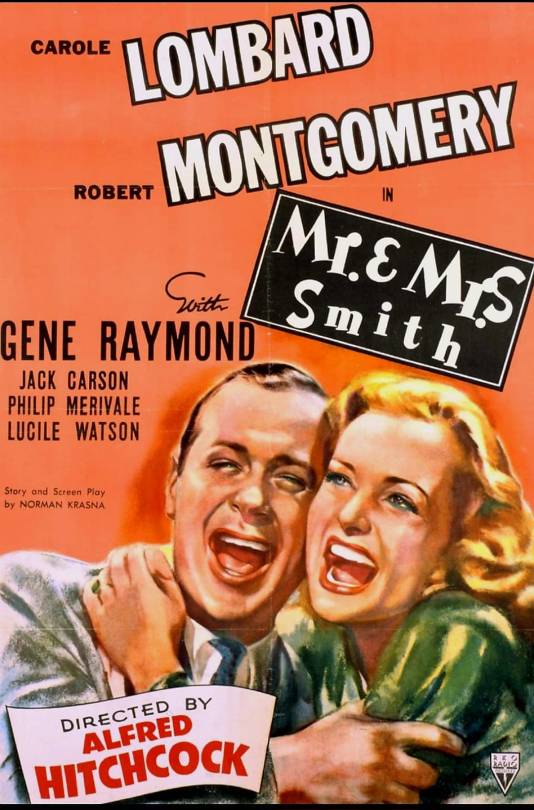
Mr. & Mrs. Smith is a 1941 American screwball comedy film directed by Alfred Hitchcock, written by Norman Krasna, and starring Carole Lombard and Robert Montgomery. It also features Gene Raymond, Jack Carson, Philip Merivale, and Lucile Watson.
Although Mr. & Mrs. Smith was the only pure comedy Hitchcock made in America, he later claimed that he agreed to do it only as a favor to Lombard. However, the files at RKO Radio Pictures show that Hitchcock himself actually pursued the project.
2 notes
·
View notes
Text
White Christmas (1954) Movie Recommendation
White Christmas – ABC Film Challenge – Oscar Nomination – I (Irving Berlin) – White Christmas – Movie Recommendation
Director: Michael Curtiz
Writer: Norman Krasna, Norman Panama, Melvin Frank (Screenplay)
Cast
Bing Crosby (High Society)
Danny Kaye (The Court Jester)
Rosemary Clooney (Here Comes the Girls)
Vera-Ellen (On the Town)
Dean Jagger (Vanishing Point)
Plot: A successful…
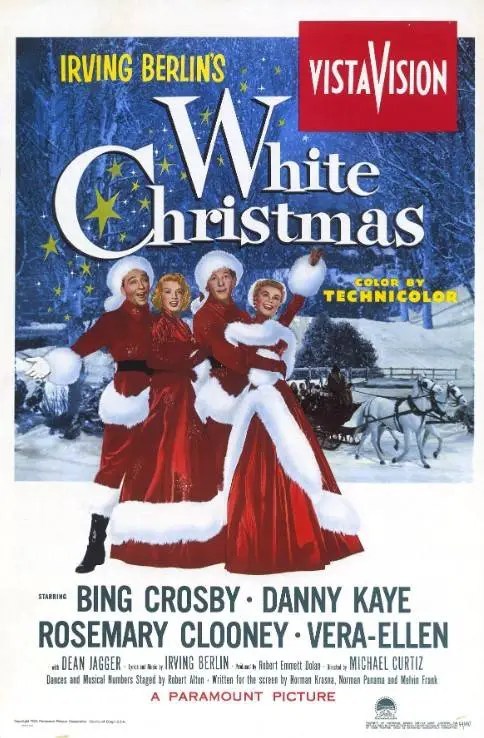
View On WordPress
0 notes
Text
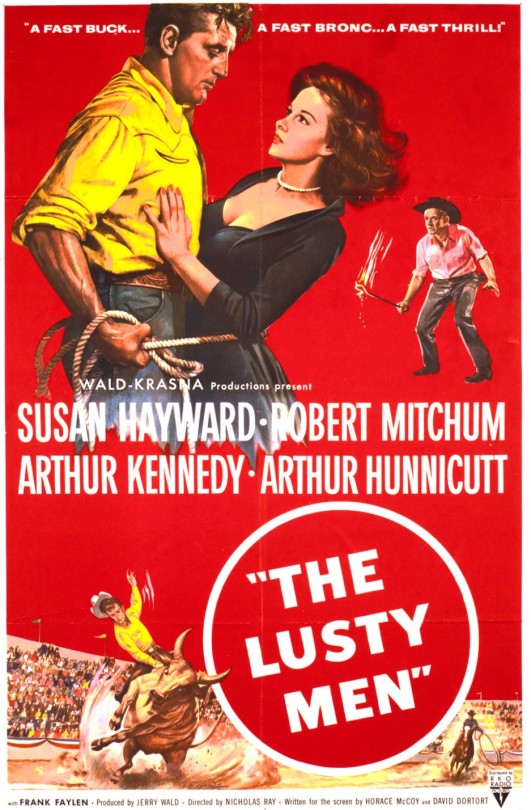
Day 70- Film: The Lusty Men
Release date: October 24th, 1952.
Studio: RKO
Genre: Western
Director: Nicholas Ray
Producer: Jerry Wald, Norman Krasna
Actors: Susan Hayward, Robert Mitchum, Arthur Kennedy, Arthur Hunnicutt
Plot Summary: The injured legendary rodeo rider Jeff McCloud travels back to his hometown. Once there he meets a couple who are saving up to buy his childhood home and ranch. McCloud befriends them, and when Wes, the young man, shows interest in competing in rodeos, McCloud mentors him. The money Wes might make from rodeos could help him afford a ranch in months rather than years. But Wes’ wife Louise is sick with worry over her husband’s safety.
My Rating (out of five stars): **** 1/2
Wow! This movie kind of blindsided me- it was a great film. I wasn’t expecting it to be so good- it’s gotta be up there in the top tier of 1952 films I’ve seen so far. It’s not a masterpiece at the level of Ikiru or Singin’ in the Rain, but it’s in good company with Phone Call from a Stranger, Five Fingers, and Sudden Fear.
The Good:
Robert Mitchum. This is the first movie I’ve seen with him where I really fell under his charms. He looks so perfect in this kind of western- denim fits him like a glove. His stoic laconic demeanor works well here too, and with his extreme masculinity, you just completely buy him as a bull rider.
Arthur Kennedy. I’ve become a fan of his since the project started- everything I’ve seen him in is impressive. His versatility is considerable- in Bend of the River he played a hardened criminal, in The Girl in White he was a sensitive and scientific beau for June Allyson, in Rancho Notorious he was a man obsessed with vengeance, and in this he begins as idealistic, with an almost childlike hero-worship of Jeff, and becomes corrupted and jaded. There’s a reason he was cast in prominent roles in so many films in 1952.
Susan Hayward. She’s another actor I’ve developed an affection for during the project. This role requires a lot of skill- Louise could easily have become grating if not played well. She did a good job playing a woman with a hard protective shell. Yes, she can seem harsh, and at one point I was worried she might be being painted as a bad nagging wife, but it all comes from a place of fear. She grew up in abject poverty, constantly moving, with no consistency. She finally has a husband and some financial security, and she’s terrified of losing it. That motivates every single thing she does in the film.
The character Rosemary. She gave me Dora vibes- my love from Outlaw Women that I’m still pining for. She was a tough talkin’ tough livin’ gal, and I loved her.
Arthur Hunnicutt as Booker, the beat-up old timer with his war wounds from rodeoing. He’s a perfect character actor, constantly making us laugh with his tall tales.
This was a very interesting look at rodeo life- what your lifestyle would be if you were a bronc or bull rider. The people you camp with, the prize money offered, the danger involved, etc... It also gave me huge respect for the rodeo clowns who often become decoys for the bulls when they get out of control.
I loved loved loved that Hayward didn’t fall in love with Mitchum. The poster would lead you to believe otherwise... but even though Mitchum fell for her near the beginning of the movie, the only one she loved was her husband. That flipped all my expectations on their head, and I loved it.
No guns were even fired or used! I cannot tell you how much I loved that fact. Here we have a western with one of Hollywood’s most macho men, and he doesn’t even have a gun or use one! He finds an old piece of a gun at his childhood home, but it’s not even complete. One of my least favorite things about westerns is guns, so to go nearly two hours without them was not only heaven, but also very daring and interesting. Mitchum doesn't need a gun to prove his masculinity, riding a bull takes multitudes more courage.
The film continually defied my expectations. The two previous examples are big reasons why. The ending is something I also did not see coming.
The special effects with footage of real rodeo riders. There were some limitations that of course showed, but I thought it was effective.
The Bad:
There were some obvious painted sets a few times that distracted me.
The rushed ending. What happened wasn’t the problem for me, just how it was kind of rushed. Two huge incredibly consequential things happen, and they both felt too hurried. If the film had taken a bit more time to hit those emotional beats, it would have been more moving and satisfying, I believe.
0 notes